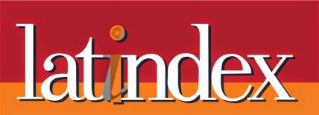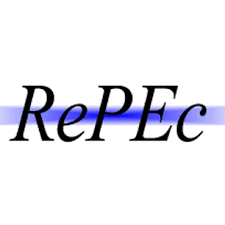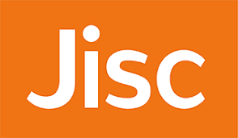Revistas
-
Iuris Tantum
Iuris Tantum es una publicación de carácter semestral (junio-diciembre) editada por el Instituto de Investigaciones Jurídicas de la Facultad de Derecho de la Universidad Anáhuac México.
Es una revista con vocación multidisciplinaria, y tiene por objeto contribuir a la divulgación de investigaciones y reflexiones de alto impacto en las áreas del derecho, las ciencias sociales, la administración pública, la ciencia política y la inteligencia estratégica; asimismo, contribuye a la difusión de literatura especializada a través de reseñas y notas críticas.
Los trabajos inéditos recibidos son sometidos a un estricto proceso de revisión por pares anónimos especialistas en los temas relativos. Todo el proceso editorial es gestionado a través de la plataforma Open Journal System, lo que asegura la transparencia del proceso y la calidad de las publicaciones.
La revista fue fundada en 1982 y desde entonces ha publicado de forma ininterrumpida de forma anual; desde su quinta época se ha optado porque la periodicidad sea semestral.
La recepción de artículos para su dictaminación y probable publicación por Iuris Tantum está disponible de forma continua. El tiempo promedio de procesamiento de los manuscritos es de seis meses.
-
Investigación y Avances en Psicología
Investigación y Avances en Psicología es una publicación semestral que tiene como objetivo publicar artículos originales de investigación básica y aplicada, que contribuyan al progreso del conocimiento en las diversas áreas de la psicología y la salud mental.
Es un medio de difusión científico dirigido a investigadores nacionales e internacionales, académicos, profesionales del ámbito de la psicología y la salud mental y a estudiantes de licenciatura y posgrado. Se publica en los meses de enero y julio y su fuente de financiamiento es la Universidad Anáhuac México.
-
Medicina y Ética
Medicina y Ética es una revista internacional de bioética, deontología y ética médica, editada por las facultades de Bioética y Ciencias de la Salud de la Universidad Anáhuac México. Inició su edición en abril de 1990, y se ha publicado ininterrumpidamente desde entonces, siendo la primera publicación sobre bioética en México. A partir de 2017 se encuentra bajo el formato de libre acceso online.
-
Sintaxis
Sintaxis es una publicación del Centro de Investigación para la Comunicación Aplicada (CICA) de la Facultad de Comunicación de la Universidad Anáhuac México.
Su periodicidad es semestral y está dirigida a investigadores, académicos, profesionales y estudiosos de la comunicación.
La misión de la revista es la publicación de artículos provenientes de trabajos de investigadores en torno a temas de interés para el desarrollo y mejora de la sociedad, la cultura, la democracia, la tecnología, la innovación, las instituciones y las organizaciones, que contengan además una mirada comunicativa puesta en la realidad social donde converjan saberes y enfoques de diferentes disciplinas, pero resaltando el ser de la comunicación que emerge en cada problema que se investiga.
-
Pedagogía infinita
La revista Pedagogía Infinita. Revista Internacional Anáhuac de Calidad Educativa nace en formato digital en el año 2025, aunque el proyecto se desarrolla en el marco de la celebración del LX Aniversario de la Universidad Anáhuac México, bajo un proceso editorial que exige una publicación periódica y de calidad científica. Su principal objetivo es el de propiciar la difusión de investigaciones pedagógicas nacionales e internacionales, con una periodicidad semestral.
Todas las contribuciones que publica están referidas al área temática de Ciencias Sociales y la categoría Educación; dentro de sus líneas específicas abarca: ciencias de la educación, pedagogía, didáctica, enseñanza de las disciplinas, evaluación educativa, liderazgo y administración de instituciones educativas, educación a distancia, formación continua del profesorado, inclusión educativa, integración de TIC, TAC y tecnologías generadoras aplicadas al proceso pedagógico.
-
Proceedings of Scientific Research Universidad Anáhuac. Multidisciplinary Journal of Healthcare
Proceedings of Scientific Research Universidad Anáhuac. Multidisciplinary Journal of Healthcare es el órgano oficial del Centro de Investigación en Ciencias de la Salud (CICSA) de la Facultad de Ciencias de la Salud de la Universidad Anáhuac México. Es una revista multidisciplinaria, con periodicidad semestral y de acceso libre. La revista acepta para su publicación artículos de investigación científica básica, clínica y epidemiológica. Se publican artículos enfocados en las siguientes áreas: medicina, nutrición, odontología, biotecnología, y terapia física y rehabilitación. La evaluación de los artículos incluye un proceso de revisión por pares (doble ciego) con la participación de investigadores reconocidos en sus áreas de especialidad, asegurando que se cumpla con una alta y rigurosa calidad científica.
-
The Anáhuac Journal
The Anáhuac Journal es una revista científica de alcance internacional, publicada por la Facultad de Economía y Negocios de la Universidad Anáhuac México. Su publicación es de carácter continuo, lo que asegura la difusión constante de investigaciones y artículos académicos.
Incluye artículos producto de investigación y estudios con resultados que tratan problemas de economía y negocios.
El Consejo Editorial, con el respaldo de un amplio grupo de árbitros nacionales e internacionales especializados en los temas publicados, evalúa de forma anónima los trabajos recibidos para decidir sobre su publicación. El dictamen emitido es inapelable.
El contenido de los artículos y comentarios publicados es responsabilidad exclusiva de los autores y no refleja necesariamente la opinión de los editores.
Los trabajos destinados a publicación deberán ser de índole académica y cumplir con los lineamientos especificados al final de la revista.
-
+Ciencia
+Ciencia es una revista de divulgación científica, cuya finalidad es actualizar a los lectores en temas relacionados con los avances científicos y tecnológicos de las diferentes ramas de la Ingeniería y ciencias afines.
Los artículos que integran las secciones de la revista son preferencialmente escritos por estudiantes de licenciatura y posgrado de la Facultad de Ingeniería de la Universidad Anáhuac México.
-
Reflectio
Reflectio tiene la misión de difundir discusiones académicas serias especialmente sobre temas filosóficos, históricos y literarios, aunque también sobre temas religiosos, de género, medioambientales, éticos, políticos u otros, privilegiando el seguimiento de los derechos humanos y la dignidad de la persona.
Su objetivo es la difusión de los trabajos de investigación de los académicos internos y externos que integran la Facultad de Humanidades, Filosofía y Letras de la Universidad Anáhuac México, pero abierta a la colaboración de investigadores de otras instituciones nacionales e internacionales.
El público al que está destinada esta publicación es principalmente académica, estudiantes, profesores e investigadores de instituciones de educación superior, públicas y privadas, y a toda persona interesada en la Filosofía y las Humanidades.
Reflectio es una revista que se publica dos veces al año, con una periodicidad semestral. Los trabajos deben ser originales e inéditos.

































